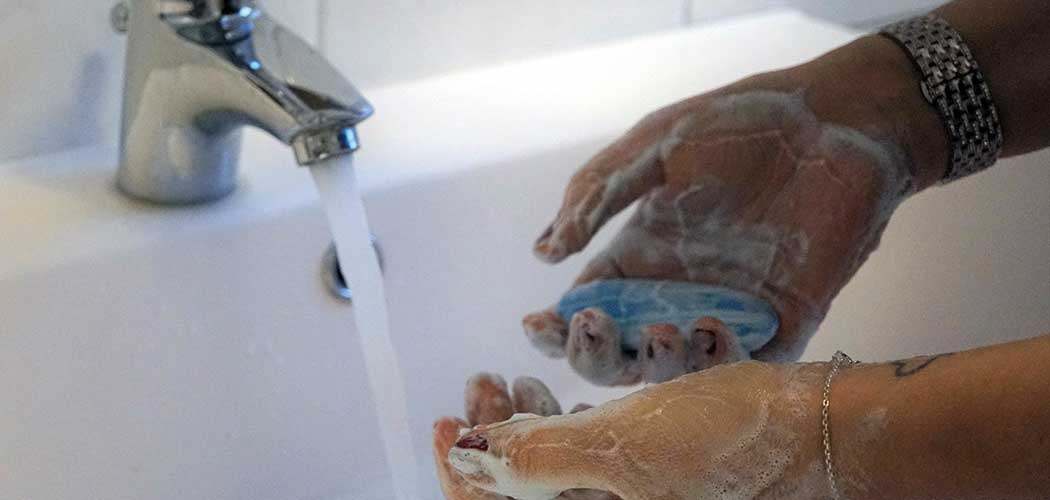The coronavirus pandemic is global news so is the focus for this month’s Boyz Doc column. Dr Laura Waters says please bear in mind that advice may have changed by the time this issue appears.

What is coronavirus?
Coronaviruses (CoV) are a large family of viruses that can infect mammals and birds. Seven strains can infect humans, typically causing mild illness (1 in 6 cases of the common cold are caused by coronaviruses) and more rarely serious illness. There are no coronavirus vaccines or antiviral drugs currently, but research teams across the globe are working tirelessly to change that. There have been headlines about using the HIV drug lopinavir/ritonavir (uncommonly used for treatment in the UK) to treat coronavirus but no good evidence yet it will work. The drugs used for PrEP are not active against coronavirus.
There have been three serious outbreaks of severe coronavirus in humans:
2003: a new coronavirus caused ‘severe acute respiratory syndrome’ (where the virus infects the lungs causing difficulty breathing), so-called SARS-CoV. Globally there were 8,000 cases, 1 in 10 died.
2012: another new strain, primarily in the Middle East, so named Middle East respiratory syndrome coronavirus (MERS-CoV). The biggest outbreak of MERS-CoV outside the Middle East was in South Korea in 2015 with a few cases and small outbreaks here and there since. So far about 2,500 cases globally with 1 in 3 dying.
2019: in December a pneumonia outbreak started in China’s Wuhan province; we now know this was caused by another new coronavirus strain, SARS-CoV-2. It’s most closely related to a coronavirus that infects bats which mutated to be able to infect humans; whether it entered humans directly or via another animal is unclear. COVID-19 is the disease caused by SARS-CoV-2 is but often used to describe the virus itself, so is the term I’ll use in this article.
Why is COVID-19 such an urgent problem?
As a new strain of virus, nobody has existing immunity to it and it spreads very easily from person-to-person (much more so than some other types of coronavirus). Although the estimated death rate of about 1 in 50 people sounds low compared to some infections, if very large numbers of people are infected that’s lots of deaths. Also, 1 in 5 people develop more severe illness and large numbers needing hospital treatment will rapidly overwhelm health care systems as is happening in Italy right now. People most at risk of serious illness and death are the elderly and people with long-term medical conditions such as lung disease, kidney disease and diabetes.
About 80% of people with COVID-19 have relatively mild illness – this can lead to diagnosis of infection being delayed or missed altogether which increases the risk of passing the virus on. Initially infection without symptoms was considered rare but recent data from Japan estimates 1 in 3 people with COVID-19 have no symptoms – making control even harder.
In February the World Health Organisation (WHO) declared COVID-19 a ‘Public Health Emergency of International Concern’ – giving WHO the legal right to make recommendations about dealing with it and (hopefully) stimulating funding and Government action. On 11th March 2020 WHO declared COVID-19 a pandemic. Epidemic is a sudden increase in cases of a disease and pandemic is an epidemic that has spread over several countries or continents, usually affecting large numbers of people. While some say calling COVID-19 a pandemic changes nothing, and might trigger panic, others say it’s helpful (and should have happened sooner) because it means authorities no longer believe they can contain the virus (the first phase in responding to infection outbreaks) so should move to mitigation which means slowing the spread as much as we can.

What about people with HIV?
Contrary to some articles in the press, there is not evidence so far that people with HIV are at higher risk of getting COVID-19 or getting more severe disease. The British HIV Association updated their statement about HIV and COVID-19 on 13 March and you can read it here: bhiva.org/BHIVA-statement-on-COVID-19.
The key messages are to follow national advice, keep taking medication as usual, ensuring you have at least 30 days supply and make sure you are up to date with flu and pneumonia vaccinations (see also below).
Like many outpatient services, HIV clinics will be moving to fewer tests and visits, including moving face to face appointments to telephone calls wherever possible – this is to minimise travel and time in crowded areas for patients, to allow for staff sickness and to free up staff to help in other parts of the NHS if needed.
Please be patient and accept any consultation in the next few months may be fairly minimal if you are stable on treatment. Check the latest updates on your clinic website or social media feed if they have one. At the time of writing there are no specific concerns about medication supply but if this changes you may be issued with a shorter than usual supply.
What about older people?
Over 60s, and particularly over 80s, are at higher risk of severe COVID-19 and of dying. Clearly there is nothing you can do to change your age but you can follow the general advice below. If the government eventually recommends self-isolation for older people then follow this advice but make sure you have someone who can check on you regularly (by phone or text), that you can get supplies of food and that you have a long enough supply of regular medication.
What can all of us do?
The most important thing to do is follow national advice. There is a lot of nonsense out there! Facebook is filled with false remedies and high profile people, including presidents and ‘TV doctors’ talking crap that is at best unhelpful and potentially seriously harmful. This is NOT ‘just a cold’, it is NOT a ‘media-storm’ and taking the ‘I’m just carrying on as usual’ is NOT the right thing to do!
There’s little you can do to improve your immune system in the short-term but avoiding smoking, eating healthily and exercising play a part in maximising your general health, including how you respond to infections. If you are in a group for whom flu and/or pneumonia vaccines are recommended (which includes over 65s, people with HIV and people with long-term conditions such as asthma and diabetes), try and ensure you have had them – bearing in mind your GP may be rather overwhelmed right now.
We must all do our part to slow the spread of coronavirus – this is also called ‘flattening the curve’ (there are numerous diagrams explaining this online, have a look).
Even if the same number of people end up infected, if transmission from one person to the next is slower over a longer period of time, our health services are less likely to get completely overwhelmed.
Deciding what actions to take, and when, is challenging – undoubtedly we will look back on this and realise there are things that could have been done differently, but the people making the decisions are doing so with the best intentions and best evidence they have right now, so the least we can all do is listen to, and follow, that advice.
We are learning rapidly as COVID-19 spreads, expect advice to change rapidly too. Quarantining the population early in an outbreak might stop new cases but there’s a limit to how long people can be shut away for. When they come out of isolation there’s a risk that COVID-19 will spread just as rapidly so large-scale quarantine, if it happens, needs to be timed carefully depending on how health services are coping.
For now, check daily what the latest advice is, either from a reputable news site or from the NHS at nhs.uk/conditions/coronavirus-covid-19. At the time of typing, this means staying at home for 7 days if you have a fever or continuous cough and only calling 111 if you cannot cope or are getting worse.
The basic advice that will not change includes washing your hands often (soap and water for 20 seconds; use hand sanitiser gel if soap/water not available), sneezing/coughing into your sleeve or, preferably tissues that you then put in a bin immediately (and wash your hands) and avoid close contact with people who are unwell.
Advice will continue to evolve about group events, travel, schools and work so keep up to date. We must all remember that this is not necessarily about our own exposure to the virus but the people we may then pass it to, who may be less able to fight it.
Finally, please don’t hoard bog rolls or other ‘essentials’ – if supplies are limited then we are best buying only what we need so those supplies can be shared.
There is light at the end of the tunnel but things will get worse before they get better. Keep an eye out for the more vulnerable, help elderly neighbours and relatives as much as you can, check what local initiatives are taking place to help others, avoid seeking NHS care unless truly essential, be patient and, most of all, be kind.
The Boyz Doc is Dr Laura Waters, an HIV and sexual health consultant at the Mortimer Market Centre in central London. Dr Laura answers your questions every month in Boyz. If you have a question for Dr Laura please email her at [email protected]














